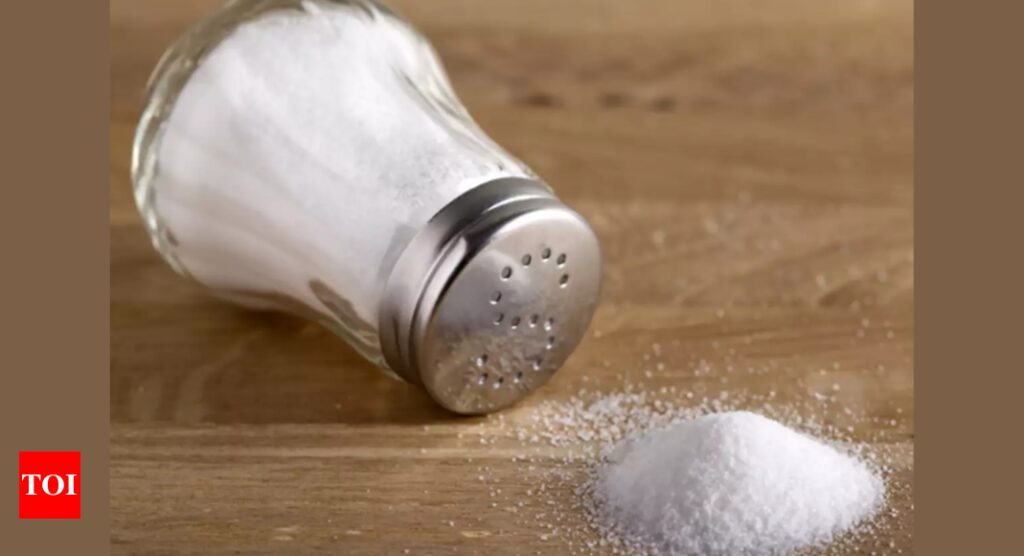[ad_1]
NEW DELHI: An average Indian consumes 8g (grams) of salt daily when the recommended daily limit is 5g, according to a study published in the journal Nature Portfolio.
The study is based on a sample survey carried out as part of the National NCD (Non-Communicable Diseases) Monitoring Survey in which researchers, among other things, monitored urinary sodium (a key component of salt) excretion in 3,000 adults and the intake of salt was estimated using a globally standardised formula. According to the study, a higher-than-recommended salt intake was observed among all adults, across sociodemographic profiles. But further analysis showed men had a higher salt intake (8.9g/day) compared to women (7.9g/daily).
Similarly, the employed (8.6g), current tobacco users (8.3g), obese (9.2g) and those with raised blood pressure (8.5g) were found to have a higher salt intake than the unemployed, those who didn’t use tobacco, non-obese and people with normal blood pressure. A diet high in sodium, a key component of common salt that we consume daily, is known to increase the risk of hypertension or high blood pressure. It can trigger heart attack and stroke.

The study is based on a sample survey carried out as part of the National NCD (Non-Communicable Diseases) Monitoring Survey in which researchers, among other things, monitored urinary sodium (a key component of salt) excretion in 3,000 adults and the intake of salt was estimated using a globally standardised formula. According to the study, a higher-than-recommended salt intake was observed among all adults, across sociodemographic profiles. But further analysis showed men had a higher salt intake (8.9g/day) compared to women (7.9g/daily).
Similarly, the employed (8.6g), current tobacco users (8.3g), obese (9.2g) and those with raised blood pressure (8.5g) were found to have a higher salt intake than the unemployed, those who didn’t use tobacco, non-obese and people with normal blood pressure. A diet high in sodium, a key component of common salt that we consume daily, is known to increase the risk of hypertension or high blood pressure. It can trigger heart attack and stroke.

Dr Prashant Mathur, director of ICMR-National Centre for Disease Informatics and Research, who led the Nature Portfolio study, told TOI a universal reduction in the dietary sodium consumption of at least 1.2g per day would help achieve a 50% reduction in the proportion of persons who require anti-hypertensive treatment. “An awareness of the adverse health effects could influence the willingness to curb excessive salt consumption,” he said, stressing on the need for effective policy interventions in food labelling, and regulating sodium levels in dietary substances prepared commercially by industry.
[ad_2]
Source link










More Stories
We can’t wait to face India in the final: Pat Cummins | Cricket News
Railways plans 3,000 additional trains in next 4-5 years to minimise number of waitlisted tickets | India News
Faridabad: Man dies after ‘falling from hotel room window’ while partying with friends